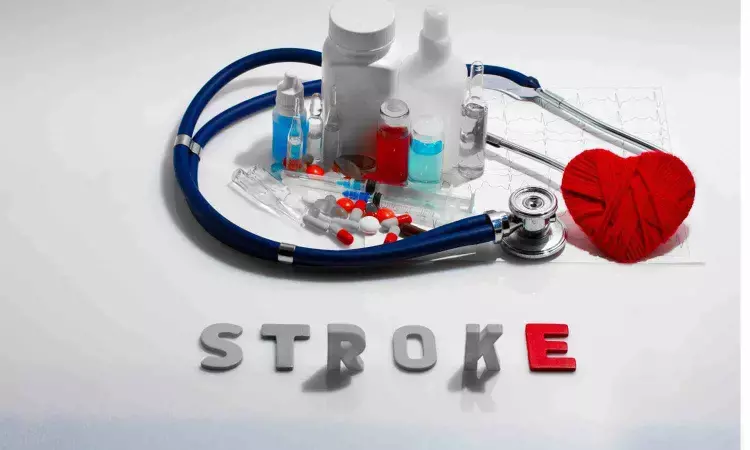- Home
- Medical news & Guidelines
- Anesthesiology
- Cardiology and CTVS
- Critical Care
- Dentistry
- Dermatology
- Diabetes and Endocrinology
- ENT
- Gastroenterology
- Medicine
- Nephrology
- Neurology
- Obstretics-Gynaecology
- Oncology
- Ophthalmology
- Orthopaedics
- Pediatrics-Neonatology
- Psychiatry
- Pulmonology
- Radiology
- Surgery
- Urology
- Laboratory Medicine
- Diet
- Nursing
- Paramedical
- Physiotherapy
- Health news
- Fact Check
- Bone Health Fact Check
- Brain Health Fact Check
- Cancer Related Fact Check
- Child Care Fact Check
- Dental and oral health fact check
- Diabetes and metabolic health fact check
- Diet and Nutrition Fact Check
- Eye and ENT Care Fact Check
- Fitness fact check
- Gut health fact check
- Heart health fact check
- Kidney health fact check
- Medical education fact check
- Men's health fact check
- Respiratory fact check
- Skin and hair care fact check
- Vaccine and Immunization fact check
- Women's health fact check
- AYUSH
- State News
- Andaman and Nicobar Islands
- Andhra Pradesh
- Arunachal Pradesh
- Assam
- Bihar
- Chandigarh
- Chattisgarh
- Dadra and Nagar Haveli
- Daman and Diu
- Delhi
- Goa
- Gujarat
- Haryana
- Himachal Pradesh
- Jammu & Kashmir
- Jharkhand
- Karnataka
- Kerala
- Ladakh
- Lakshadweep
- Madhya Pradesh
- Maharashtra
- Manipur
- Meghalaya
- Mizoram
- Nagaland
- Odisha
- Puducherry
- Punjab
- Rajasthan
- Sikkim
- Tamil Nadu
- Telangana
- Tripura
- Uttar Pradesh
- Uttrakhand
- West Bengal
- Medical Education
- Industry
Reteplase superior to Alteplase for Treatment of Acute Ischemic Stroke: NEJM

As a significant advancement in stroke treatment, a recent clinical trial published in the New England Journal of Medicine revealed that the thrombolytic agent reteplase may offer superior outcomes when compared to the current standard treatment, alteplase. This study involved over 1,400 patients and th outcomes suggests that reteplase could become a new standard in early reperfusion therapy for acute ischemic stroke.
This randomized trial involved patients who experienced an ischemic stroke within 4.5 hours of symptom onset. The participants were randomly assigned to receive either intravenous reteplase or intravenous alteplase. Reteplase was administered in two boluses of 18 mg each, 30 minutes apart, while alteplase was given at a dose of 0.9 mg per kilogram of body weight, with a maximum dose of 90 mg.
The primary efficacy outcome measured was the proportion of patients achieving an excellent functional outcome at 90 days post-treatment. This was defined as a score of 0 or 1 on the modified Rankin scale, where 0 indicates no neurologic deficit or symptoms, and 6 indicates death. Safety was primarily assessed by the incidence of symptomatic intracranial hemorrhage within 36 hours of treatment.
The study enrolled a total of 1,412 patients, with 707 receiving reteplase and 705 receiving alteplase. The results found that 79.5% of patients in the reteplase group achieved an excellent functional outcome when compared to 70.4% in the alteplase group. This marked a statistically significant improvement, with a risk ratio of 1.13 (95% CI, 1.05 to 1.21; P<0.001 for noninferiority and P=0.002 for superiority).
However, the safety profile of reteplase showed a slightly higher incidence of symptomatic intracranial hemorrhage within 36 hours, which was 2.4% in the reteplase group when compared to 2.0% in the alteplase group. The overall incidence of any intracranial hemorrhage at 90 days was higher in the reteplase group (7.7%) when compared to the alteplase group (4.9%), with a risk ratio of 1.59 (95% CI, 1.00 to 2.51). Also, adverse events were more common with reteplase which affected 91.6% of patients and 82.4% in the alteplase group (risk ratio, 1.11; 95% CI, 1.03 to 1.20).
Despite the higher rates of adverse events and intracranial hemorrhage, reteplase demonstrated a significantly better functional outcome than alteplase for patients treated within 4.5 hours of ischemic stroke onset. Overall, these findings suggest that reteplase could potentially replace alteplase as the standard agent for early reperfusion therapy, pending further research to optimize its safety profile.
Reference:
Li, S., Gu, H.-Q., Li, H., Wang, X., Jin, A., Guo, S., Lu, G., Che, F., Wang, W., Wei, Y., Wang, Y., Li, Z., Meng, X., Zhao, X., Liu, L., & Wang, Y. (2024). Reteplase versus Alteplase for Acute Ischemic Stroke. In New England Journal of Medicine. Massachusetts Medical Society. https://doi.org/10.1056/nejmoa2400314
Neuroscience Masters graduate
Jacinthlyn Sylvia, a Neuroscience Master's graduate from Chennai has worked extensively in deciphering the neurobiology of cognition and motor control in aging. She also has spread-out exposure to Neurosurgery from her Bachelor’s. She is currently involved in active Neuro-Oncology research. She is an upcoming neuroscientist with a fiery passion for writing. Her news cover at Medical Dialogues feature recent discoveries and updates from the healthcare and biomedical research fields. She can be reached at editorial@medicaldialogues.in
Dr Kamal Kant Kohli-MBBS, DTCD- a chest specialist with more than 30 years of practice and a flair for writing clinical articles, Dr Kamal Kant Kohli joined Medical Dialogues as a Chief Editor of Medical News. Besides writing articles, as an editor, he proofreads and verifies all the medical content published on Medical Dialogues including those coming from journals, studies,medical conferences,guidelines etc. Email: drkohli@medicaldialogues.in. Contact no. 011-43720751


